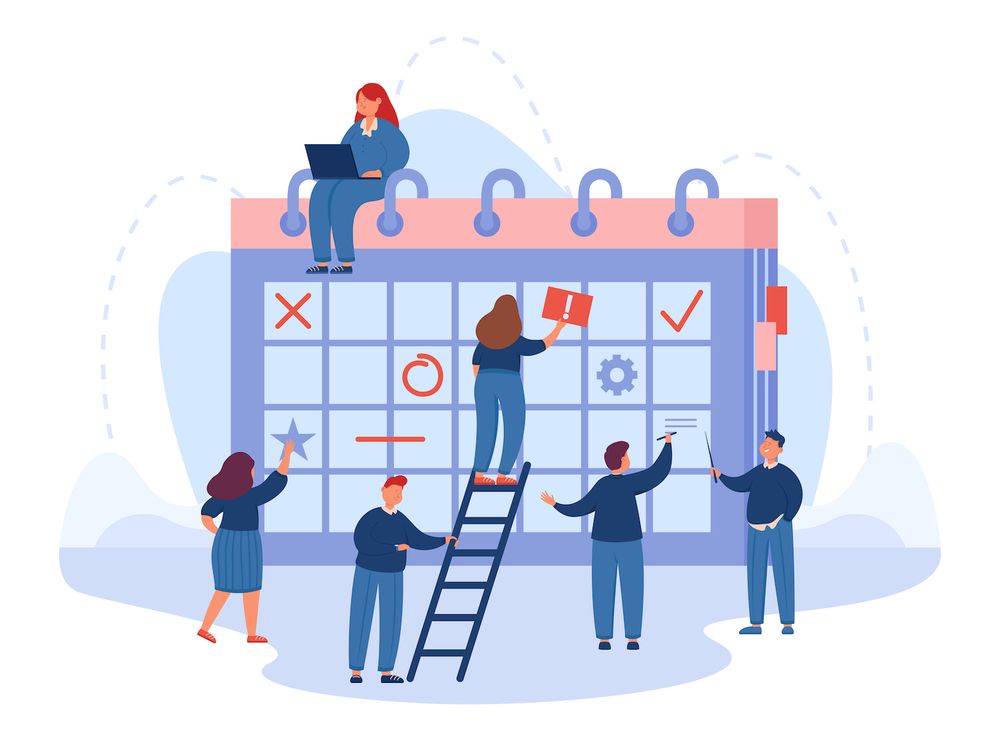Can SaaS Companies Afford to Ignore Sales Taxes and VAT? -
One thing I've discovered while working is the widespread tendency for SaaS and software firms to not pay transaction-related taxes (sales taxes, VAT, GST, etc. ).
And I get it.
Sales taxes, VAT, and GST can be confusing, complicated and are not the things IT leaders would like to invest their time on.

But also, you should consider that delaying tax-related transactions can lead to a risk that goes beyond the payment of the tax back at some time to come.
In one of my chats with the Global Tax Director of's Rachel Harding, my most experienced and knowledgeable source of know about this topic, she told me about:
- 40% penalties and interest She's witnessed software companies incur 40% in interest and penalties in the event of ignoring state sales tax requirements.
- Multi-million dollar valuation adjustments from historical sales tax noncompliance during acquisition due diligence.
And there's and more.
So to answer our own question: No You shouldn't forget about sales, VAT, and GST taxes.
In this piece this article, we discuss five important points SaaS firms need to be aware of about taxes. A lot of this information comes from conversations I had with Rachel. Below, you'll be able to listen to two of our chats for more details.
5 things SaaS Companies Need to Understand about Sales Taxes
1. Sales, VAT, taxes on GST and Sales Taxes may affect SaaS Valuations
While Rachel was working on a group of tax specialists for mergers and acquisitions for software firms with small budgets, she witnessed million-dollar price changes as a result of tax evasion.
"If you're planning to make any form of ownership change, majority or minority investment, people want to look into your business," Rachel explained. "They are likely to take a look at all your processes and ask questions like, are you aware about where your product is tax-deductible? Are you adhering to these rules when collecting and remitting? Are you compliant? Because if not, you'll be required to rectify it before they buy the item, or else they'll reduce the price of the purchase."
2. If You Do It Right There's no reason to owe anything More
"If you're doing it correctly technically, the net zero is not a problem to you." Rachel explained.
The sales tax is a consumptive tax -- a tax to the consumer and not your business. It shouldn't be something you're having to pay out of pocket. But it is up to you to to collect sales tax on the buyer's behalf, and then remit it to the proper public agency. The buyer is responsible, but a seller's obligation.
"It's when you're doing it wrong that it becomes an expense and liabilities on your balance sheet. In the event that you don't, you're unlikely be able to charge a sales tax two years after the tax was due. So then it's all from your pocket."
3. Consumption Taxes Are Calculated based on the Place that the buyer is located, Not the location of the seller.
Taxes on sales are a bit complicated (especially those in those in the U.S.), but in general, the thing to know is that sales taxes are collected where the benefit of the item is consumed (aka where your customer is). It's not determined based on the location of your business, or the location of your corporate headquarters.
In practice, the most relevant data used to determine the source of sales is the billing as well as the computer's IP address. As the name implies, SaaS is taxed the same way as products, but not services and therefore only 20 of 45 U.S. states that have sales tax systems actually tax SaaS. And since 2018if there are sufficient taxable sales within a area that is greater than the limit, then you're deemed to have economic connection (a huge shout-out to South Dakota v. Wayfair for this concept! ).
A sales threshold is the amount of sales you have in a specific jurisdiction before you have to submit taxes. Each tax region (whether it's a territory, state, territory, or country or a national level) has unique ways of setting a threshold.
4. The Tax Laws and Regulations have dramatically changed over the past 10 years
Sales taxes, VAT and various other taxation related to transactions have changed a lot during the past 10 years. Certain adjustments are more crucial than others and have changed the landscape entirely.
2015. EU Requires VAT Collection from Software companies that are not EU-based.
On January 1, 2015, the EU has begun requiring software providers to collect and remit VAT in accordance with the place of the purchaser and not on the location of the seller's company or employees.
The VAT rates are determined by the nation, which means governments are accountable for keeping up with adjustments to these rates on an individual level.

2018: U.S. The Senate has voted that states can collect Sales Taxes from non-resident businesses.
In 2018 it was the year that The U.S. Supreme Court ruled that states may charge sales tax for purchases from out-of-state sellers (including online sellers) regardless of whether the seller is not located in any physical presence within the state that taxes it ( South Dakota v. Wayfair, Inc.). (A.k.a. why we wrote this article since now nonresidents and small businesses need to understand sales tax and the way it is applied.)
In the U.S., sales tax laws vary from state to state. Florida and California do not require collection of sales tax on SaaS subscriptions. But New York and Pennsylvania do.
In the year 2020 Massachusetts reclassified SaaS fees to "personal tangible property" meaning SaaS subscriptions are now sold with sales tax within the state.
In our conversations, Rachel offers other examples of tax law evolving to SaaS companies around the world:
"We have seen, around the globe, countries making rules specifically targeting companies that are not resident in the country and provide digital goods and services. There are some that have a limit for sales while some states that each dollar of revenue is taxed."
5. Global Consumption Taxes Are Getting More Complex
The new tax laws are being passed that directly impact SaaS. Soon, in many different countries, SaaS companies running digital platforms could be required to report every seller that uses their platform.
How come tax laws have become more complex?
Nations are aware of the loss of the tax revenues from digital sales which software firms aren't revealing.
As a result, they're finding new ways to track the flow of money in their state or nation and to enforce the collections.
The Four Ways SaaS Companies Can Manage Sales VAT and Taxes
How do SaaS businesses determine all the taxes they must withhold and remit all over the world?
There are four approaches that we have observed SaaS businesses employ to meet their tax obligations related to transactions:
1. Do not ignore It
We've discussed in this piece, delaying sales taxes is a very frequent practice, but it could leave your company with many years of tax back as well as penalties, charges, and fees. The days where this approach could be effective is waning. The pace at which online transactions continue to increase, so too is the motivation and capacity to regulate it.
2. Self-Help
Making your taxes yourself is an option that works well in larger businesses that have the capacity to do it effectively with an in-house team.
But it's not as easy as integrating an automated tax tool into your sales platform.
SaaS businesses also have to think about:
- Making sure your data is safe and easily accessible.
- Understanding what's taxable and the rates to charge.
- Monitoring tax thresholds to know where you'll need to remit taxes as well as file tax return.
- Making sure you pay the proper amount and filing returns on time for all tax jurisdictions where you have an obligation. This can be monthly, quarterly, or annually.
- Staying informed about the latest tax law and rules.
- Answering inquiries and notices from Tax officials. Are they phishing, or is it actionable?
This could be difficult to a department that does not have knowledge of technology and may cause discontent as well as turnover.
3. Find an accounting company to hire
When you outsource your taxes it means that there's fewer internal resources needed and it's likely to increase the cost. Instead of a custom approach, hiring an accounting firm usually means that they'll adopt a cautious approach and ensure compliance to the maximum extent regardless of whether you'd like to have a more personalized approach.
There's a perspective that really only an expert in-house could provide -- one that requires understanding the business strategy, the tax laws, and how they all intersect.
4. Make use of a Merchant of Record (MoR) and outsource the liability
We are the merchant of record for the transactions you make on your site which means we are accountable to collect and pay taxes on your behalf. If you're looking to handle reduced tax rates, customized taxation, tax-exempt transactions, B2C or B2B -- all of it is taken care of for you.
The merchant of record is there to assist you if there are tax audits or questions that are raised. When an audit occurs, we intervene and assume the responsibility to ensure that you concentrate on building and expanding your SaaS business.
What's the Best Solution for your company?
It's possible that this all seems too overwhelming, but the worst choice is nothing.
According to Rachel put it, "I can never promise that you'll never get audited. What I can say is that taking small steps now could make you a better candidate for more brighter and better future."
For determining what's the most effective for your business, she recommends assessing the resources available and the options.
"It's all about knowing your business and your location, as well as global tax law (duh), and what risks you're willing be willing to take."
Stream My Full Interviews With Rachel Harding
Part One: Why SaaS Companies Can't Afford to not pay sales tax
Part 2: How Are the Stricter Tax Laws Mean for SaaS

